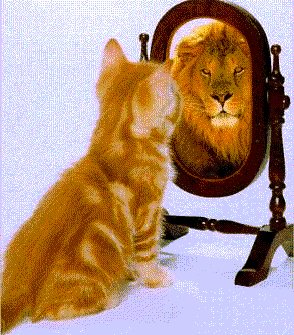
What is the origin of the Olympics?
The Olympic Games, originally created to honor Zeus, was the most important national festival of the ancient Greeks, and a focus of political rivalries between the nation-states. However, all competitions involved individual competitors rather than teams. Winning an Olympic contest was regarded more highly than winning a battle and was proof of an individual arete or personal excellence. The winners were presented with garlands, crowned with olive wreaths, and viewed as national heroes.
Although records of the Olympics date back to 776 BC when the Olympics were reorganized and the official "First Olympiad" was held, Homer's Iliad suggests that they existed as early as the 12th century BC. The games were held every four years in honor of Zeus, in accordance with the four year time periods which the Greeks called olympiads. Emperor Theodosius I of Rome discontinued them in the 4th century AD, and they did not occur again until they were reinstated in Athens in 1896.
Originally, the Olympics was confined to running, but by the 15th Olympiad, additional sports were added the pentathlon (five different events), boxing, wrestling, chariot racing, as well as a variety of foot races of varying lengths, including a long-distance race of about 2.5 miles.
Athletes usually competed nude, proudly displaying their perfect bodies. Women, foreigners, slaves, and dishonored persons were forbidden to compete; women, once they were married, were not even allowed to watch any Olympic events, except for chariot races. However, every four years, women held their own games, called the Heraea after Hera, held at Argos, and beginning as early as the 6th century B.C. and lasting at least six centuries until Roman rule.
How was the Olympics a sacred festival?
Unlike our modern Olympic games, the ancient Greek Olympic games was a religious rather than secular festival, celebrating the gods in general and Zeus in particular. The contests themselves alternated with altar rituals and sacrifices, as well as processions and banquets. Individual competitors trained rigorously not only for personal glory, but also to impress and please a god through demonstrating strength and agility.
Although one legend suggests that Heracles won a race at Olympia and decreed that races should be instituted every four years, the most common legends suggest that Zeus originated the games after he defeated Cronus in battle. Many events occurred at the Olympic stadium near the temple of Zeus in Olympia southwest of Athens. Inside the temple was the 42 foot high gold and ivory statue of Zeus sculpted by Pheidias, considered to be one of seven wonders of the ancient world.
Eventually the games were also held at other sacred spots in the Greek city-states, such as Delphi and Corinth. These games honored the ruling god of the particular locality, most notably Apollo and Poseidon in addition to Zeus. Apollo from the start had an indirect role in the festivities, since the winners were always lauded with garlands of laurel, the tree most sacred to Apollo ever since his beloved Daphne was transformed into a laurel tree.
The noteworthy classics web site, Perseus, from Tufts University, has a mini-site on the ancient Olympics at http://www.perseus.tufts.edu/Olympics/. According to Perseus scholars:
"The Games were held in honor of Zeus, the king of the Greek gods, and a sacrifice of 100 oxen was made to the god on the middle day of the festival. Athletes prayed to the gods for victory, and made gifts of animals, produce, or small cakes, in thanks for their successes.
According to legend, the altar of Zeus stood on a spot struck by a thunderbolt, which had been hurled by the god from his throne high atop Mount Olympus, where the gods assembled. Some coins from Elis had a thunderbolt design on the reverse, in honor of this legend.
Over time, the Games flourished, and Olympia became a central site for the worship of Zeus. Individuals and communities donated buildings, statues, altars and other dedications to the god."




